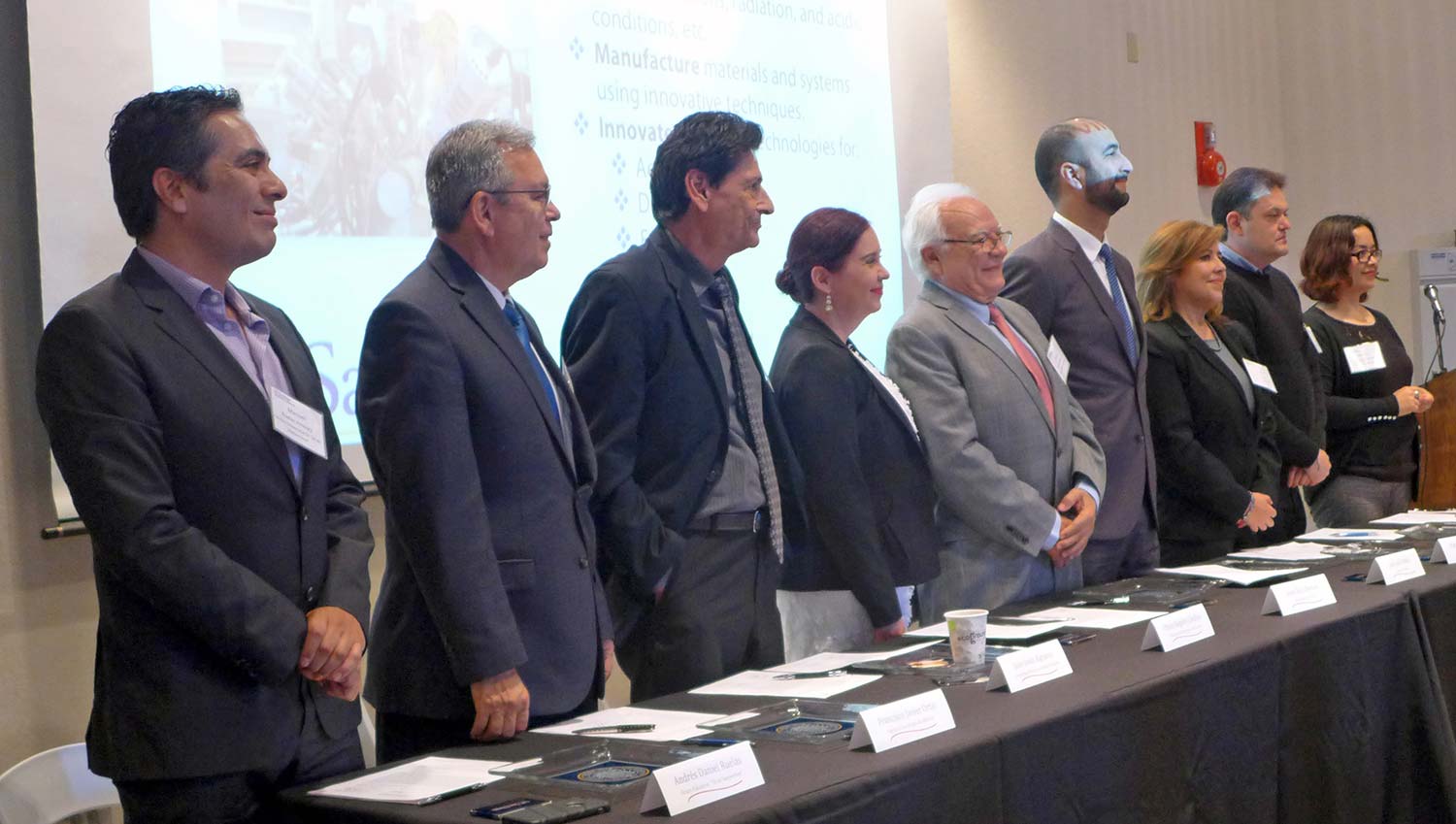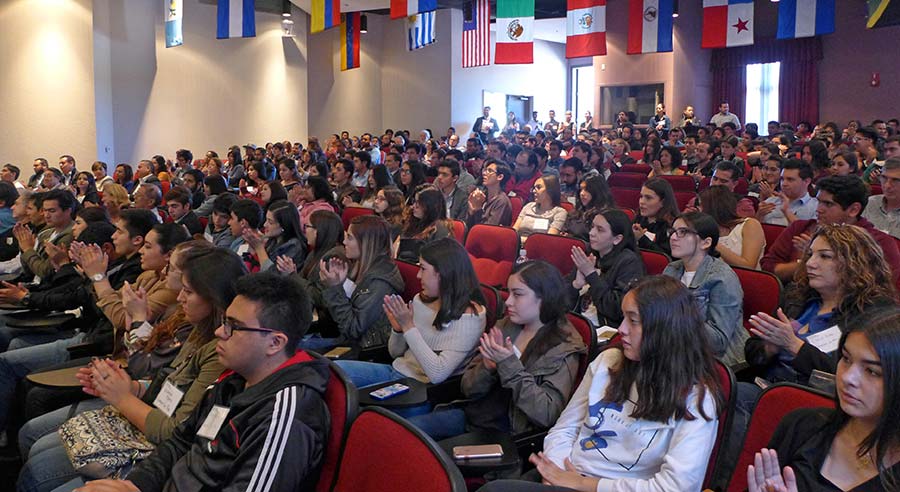UC San Diego and Baja California Institutions Launch CaliBaja Education Consortium
Published Date
By:
- Ioana Patringenaru
Share This:
Article Content

Olivia Graeve, fourth from left, spearheaded the creation of the new CaliBaja Education Consortium. Here she poses with leaders of educational institutions from Baja California who will be part of the consortium.
The University of California San Diego and 13 institutions in Baja California announced the launch of the CaliBaja Education Consortium at the Cross-border Innovation Summit that took place on June 9, 2017 on the UC San Diego campus. The new entity will serve the entire CaliBaja region and will allow researchers and students to work together across borders. Leaders of 10 institutions signed memoranda that brought the consortium to life during the event.
“We see the border as an interface--a site of exchange, not exclusion. We are creating partnerships to exchange knowledge, resources and education,” Chancellor Pradeep K. Khosla said. “This partnership increases opportunities for students, advances our collective research and deepens our collaborative relationships.”
UC San Diego has a human bridge between the two cities and the two countries in the person of Olivia Graeve, a professor of materials engineering at the Jacobs School of Engineering, Khosla said. Graeve grew up in Tijuana and was an undergraduate at UC San Diego. She now directs the campus’ CaliBaja Center for Resilient Materials and Systems, which includes researchers on both sides of the border.
“What brings us together is this: that we can change this little piece of real estate we occupy here,” Graeve said. “This is a great experiment that is going to define the educational opportunities for students in our region, which is our home. There is no wall between us. We are one, we are community. We have common goals. And we should never lose sight of that.”

The audience at the Cross-border Innovation Forum was standing room only.
The consortium will allow students, from high school to the graduate level, to do research and take classes both at UC San Diego and at various Baja California institutions. The campuses will also work together to develop curriculum.
UC San Diego and high schools in the border region already take part in ENLACE, a program that brings together youth from San Diego County and Baja California to spend seven weeks doing research here on campus. The students work in pairs, with one student from Baja California and the other from San Diego. This summer 110 students, including undergraduates, will take part in the program, up from 70 last summer. The program is now in its fifth year.
UC San Diego already has partnerships with the Universidad Nacional Autónoma de México (UNAM), the Universidad Autónoma de Baja California (UABC) and the Centro de Enseñanza Técnica y Superior (CETyS), which will also join the consortium.
“Today is about formalizing a partnership that is already thriving—and setting the stage for expanding that collaboration—in both education and research,” said Albert P. Pisano, dean of the Jacobs School of Engineering at UC San Diego.
The participating institutions are: UC San Diego, the Universidad Nacional Autónoma de México, Universidad Autónoma de Baja California, Centro de Ensenanza Tecnica y Superior, Universidad Politécnica de Baja California, Universidad Tecnológica de Tijuana, Instituto Tecnológico de Tijuana, Instituto Tecnológico de Mexicali, Universidad de Tijuana, Centro Universitario 16 de Septiembre, Colegio La Paz, Instituto Altazor, Instituto Cumbres, and Instituto Mexico.
Share This:
You May Also Like
Stay in the Know
Keep up with all the latest from UC San Diego. Subscribe to the newsletter today.



